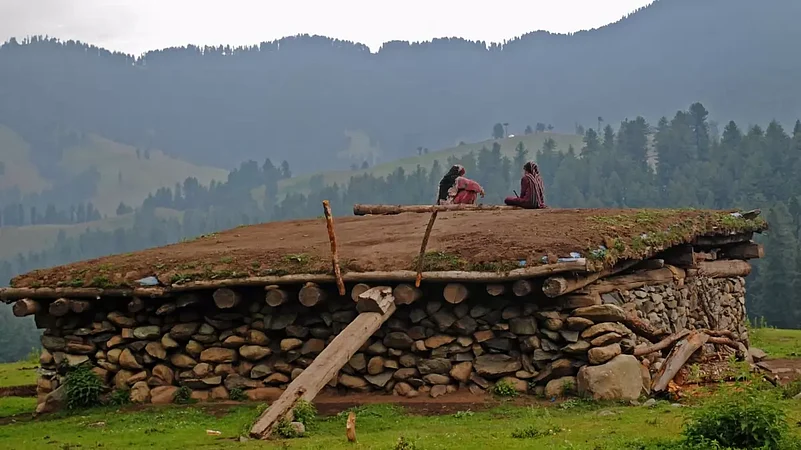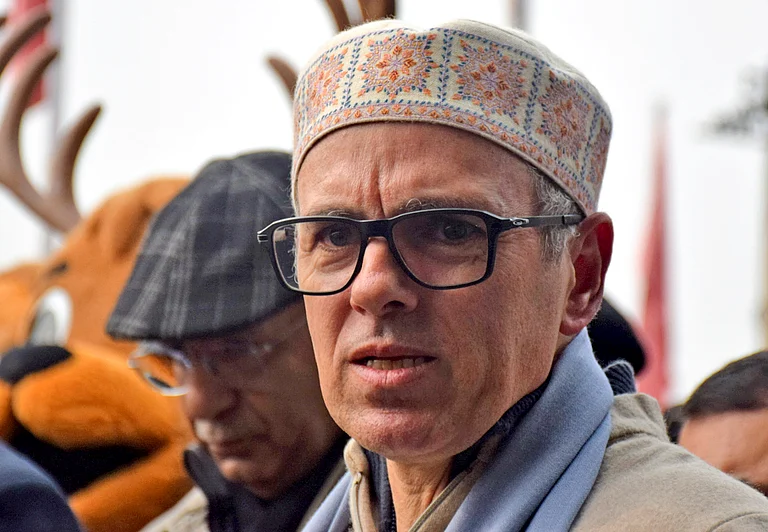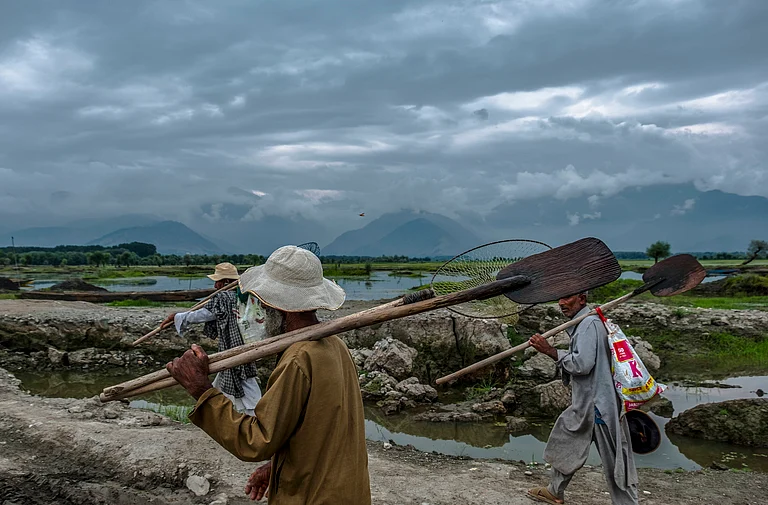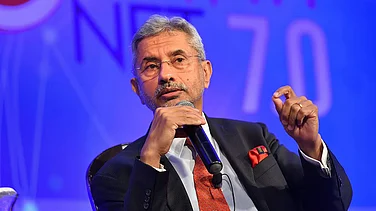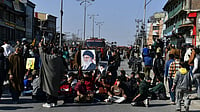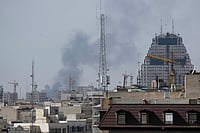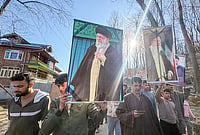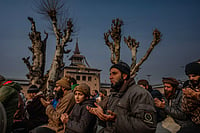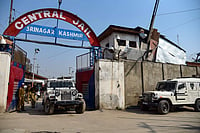Fifty-year-old Abdul Rashid Gorsi couldn’t afford the education of his girls, who dropped out of school and are now doing sewing work or daily household chores at home in the Brenwar area of Central Kashmir’s Budgam district. Gorsi had thought of taking a loan to raise sheep, but he had no place to graze the livestock. He does menial labour and his earnings are so little that he can hardly make ends meet.
Following the revocation of Article 370, Gorsi had received an eviction notice before the 2024 assembly elections asking him to vacate the land that he lived on for years and it was only after the issue evoked political outrage that the authorities promised that people like him, who are Gujjars would get possession rights. He said that even as he had submitted all the documents in support of his claim for permanent utilisation rights on the land that the family possessed for several generations, his claim had not been entertained.
In response to the question in Lok Sabha that the tribal communities are being denied titles under the Forest Rights Act (FRA) and are forced to vacate their land, the Minister of Tribal Affairs said that in Jammu and Kashmir a total of 46,090 claims were received with the maximum being individual claims numbering 33,233 and the rest being community claims. Out of these claims, 39,924 have been rejected till May this year, comprising nearly 85 per cent of the cases that were filed.
“We are not being allowed to graze our sheep on the meadow on which we used to do this for centuries. We faced eviction earlier, and now we fear that we will be forced to vacate our ancestral land as our claims have not been entertained,” said Gorsi.
“I have five girls. Two studied up to the 10th class and dropped out, and I couldn’t afford the education of my three other girls and could only send my son to school. I am unable to utilise the land for grazing, which was used freely by our ancestors,” he said.
Activist Raja Muzafar Bhat, who has been fighting for the rights of tribal families, said that "most of the claims have been rejected here even as the FRA clearly spells out that those living in forests for generations can not only construct houses, but also utilise it for living."
After the large number of rejected claims, political parties in Kashmir have said that this was done to deprive the people of their land.
“We have been repeatedly raising the issue that the people from the tribal community who are the real guardians of the forests should get the rights over their land. They are the people who have been protecting the forests. But we have seen how for the last five years they have been evicted”, PDP spokesperson Mohit Bhan said.
“The data which was presented in the Parliament has shown that it is only talk and no action from the government when it comes to the empowerment of tribal communities”, he further added.
Former MLC and senior Congress leader, G N Monga, said that BJP has been trying to evict people from their land in Kashmir as part of its policy to disempower people. “The rejection of large number of claims under the Forest Rights Act is unusual and these cases should be reviewed”, Monga said.
Raja Muzafar said that prior to the revocation of Article 370 on August 5, 2019, people had been living on the lands for generations, on which they were earlier issued eviction notices. According to the FRA, the Gram Sabha shall be the authority to initiate a process to determine the “nature and extent of individual or community forest rights or both that may be given to the forest-dwelling Scheduled Tribes and other traditional forest dwellers within the local limits of its jurisdiction.”
“The process of getting the cases vetted at the village level has also been done in the cases which were later rejected,” said Raja Muzafar.
Ashiq Ahmad Jehara said that the claim under the FRA has also not been entertained in the case of his family in the Brenwar even as they have depended on the forest land for grazing for years. “My brother grazes the cattle, and he is unable to carry out his family work as the claims have not been entertained. He is nearly jobless now,” he added.
“We have been fighting for forest rights for the last five years. Leave the clearance of claims, we are not even allowed to carry out the grazing on the land. We filled out forms, but our rights are not being recognised. There is a zero implementation of the Forest Rights Act.”
“At the village level we had filed the claims at both the individual and community level with the Forest Rights Committee. We had filed the claims for community grazing rights, that too have also not been admitted. Individual claims have been filed by landless people who have been residing traditionally on forest land, but most cases in our village of over 1,500 families have not been admitted,” said Jehara.


